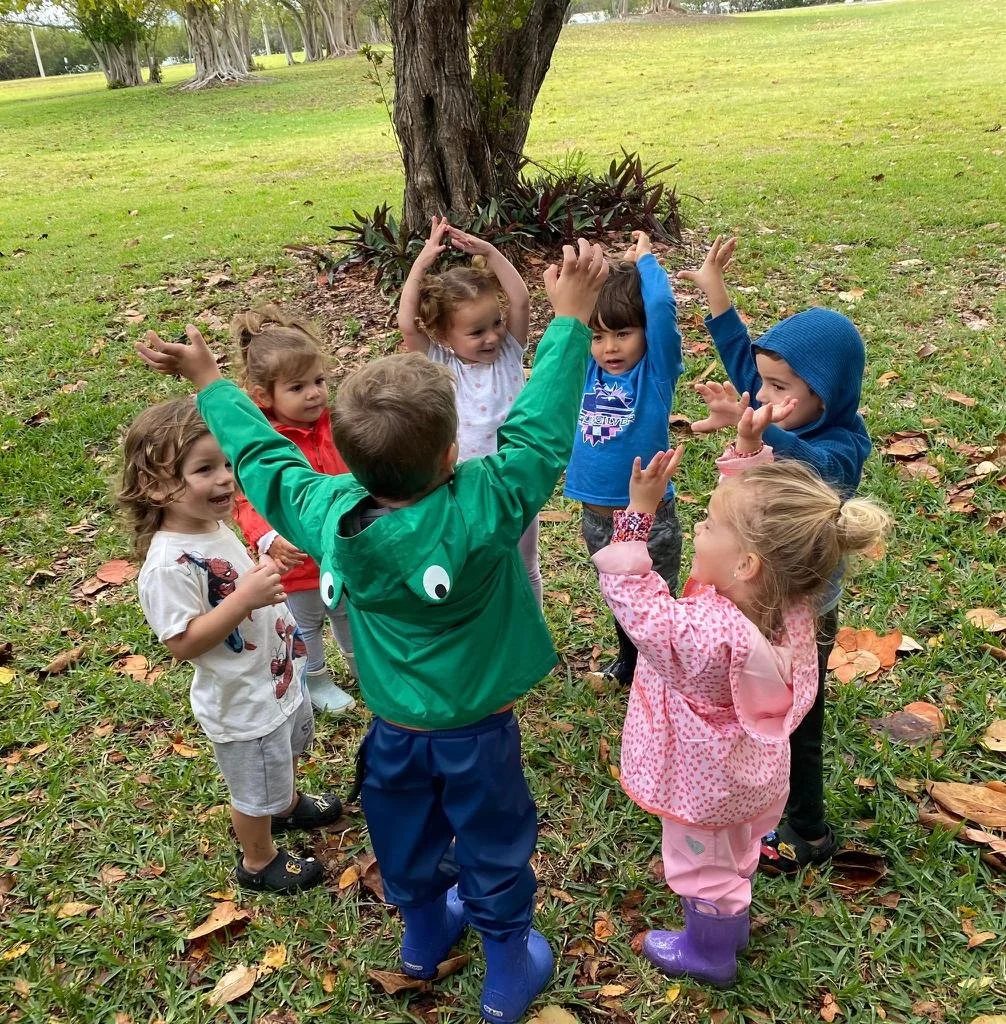
Pachamama Philosophy
We believe in connecting children with nature, a place to find peace and wonder. Those earliest memories should be filled of climbing trees, running around, picking treasures from the forest, and experiencing learning in the greatest playground of all.
Kids would develop three main goals when connecting with nature: Interaction – Communication – Motor Skills.
We have amongst us scientists, engineers, athletes, musicians, pilots, astronauts, doctors, lawyers and many more, therefore they should be exposed to amazing experiences and projects where they would start finding their passions.
Nature offers the best learning experience and the most important foundation to develop individual, social and academic skills, taking advantage of its diverse structures, smells, textures, colors, its creatures, and their sounds, where freedom, opportunities for risk taking and a world for amazement is available for young learners.
Encounters with nature encourages discovery, experimentation and thoughtful inquires on kids, where free unstructured play will boost creative thinking, problem solving and healthy social interactions.
We believe in nature learning with purpose, the best treasured setting to offer a safe and supportive learning environment, where individual and group goals should be reached according to kids ages.
Our philosophy is rooted in wise practices, deep listening, compassion, and empathy. The goal is to provide children with repeated access to nature, give them time and space to investigate and foster a sense of wonder. We will encourage children to be curious, to explore their environment as a steward of the land while building upon their sense of discovery that allows for meaningful connections to oneself and others.
Children are naturally motivated to learn, and they do so by exploring the world around them. Children will experience open and flexible environments where playful exploration, problem solving, and creativity are encouraged and purposefully planned.
How Pachamama nurtures your child.
-

Hands-on STEAM Learning
Creative problem solving
Focus and concentration
Risk assessment and management
-

Complete Sensory Experiences
Balance, coordination and motor skills
Physical strength and stamina
General health and immunity
-

Character Development & Self-Awareness
Confidence and self-esteem
Creativity, curiosity and imagination
Independent thinking and play
-

Emotional Resiliency & Regulation
Decreased stress and anxiety
Secure attachment and trust
Self-sufficiency and practical life skills
-

Language & Communication
Teamwork and cooperation
Empathy and altruism
Mixed-age group connection
-

Environmental & Seasonal Changes
Environmental exploration
Sustainability and stewardship
Biological and ecological literacy
“When children play in natural spaces, they’re far more likely to invent their own games than in more structured settings – a key factor in becoming self-directed and inventive adults later in life.”
Richard Louv


